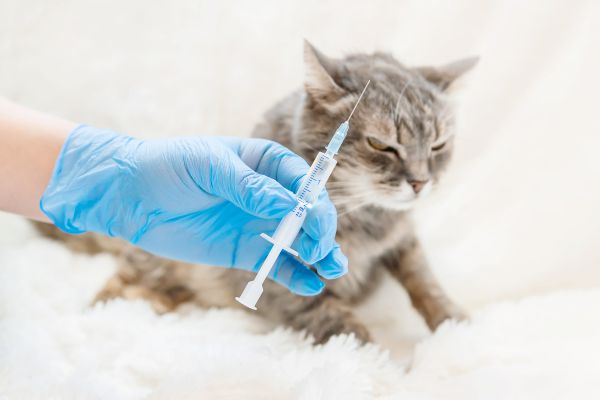Caring for a feline companion involves more than providing food, water, and affection. One of the most essential responsibilities a cat owner must embrace is ensuring their pet’s long-term health through proper immunization. Understanding the vaccination schedule for cats is crucial in safeguarding them against potentially life-threatening diseases. As a responsible cat parent, knowing when and why to vaccinate can make all the difference in your pet’s quality of life and longevity.
Why Vaccinations Are Vital for Feline Health
Vaccinations serve as a vital line of defense against several contagious and deadly feline diseases. Just like humans, cats rely on vaccines to help their immune systems recognize and combat viruses and bacteria before they take hold. Some diseases, such as feline panleukopenia and rabies, are not only highly contagious but also often fatal if left untreated.
Even indoor cats are not completely exempt from risk. Many viruses are airborne or transmitted through surfaces and human contact, making indoor environments less secure than they appear. Therefore, a vaccination schedule for cats should not be overlooked, regardless of a cat’s lifestyle.
Core and Non-Core Vaccines: Understanding the Difference
To fully grasp the vaccination schedule for cats, it’s important to differentiate between core and non-core vaccines. Core vaccines are essential for all cats, as they protect against diseases that are widespread and pose significant health risks. These typically include vaccines for feline panleukopenia (also known as feline distemper), feline herpesvirus, calicivirus, and rabies.
Non-core vaccines, on the other hand, are recommended based on a cat’s specific risk factors such as environment, age, health status, and exposure to other animals. These may include vaccinations against feline leukemia virus (FeLV), Bordetella, and Chlamydophila felis. A veterinarian will evaluate your cat’s lifestyle and exposure to determine whether these additional vaccines are necessary.
The Kitten Vaccination Timeline
The vaccination schedule for cats typically begins during kittenhood. Kittens receive maternal antibodies from their mother’s milk, which offer early protection. However, these antibodies eventually wear off, necessitating vaccinations to ensure ongoing immunity. Around six to eight weeks of age, the first round of vaccines is usually administered.
As a kitten matures, additional booster shots are required every three to four weeks until about sixteen weeks of age. This series of vaccinations builds strong and lasting immunity against dangerous feline illnesses. Ensuring timely vaccinations during these early stages is pivotal for preventing health complications later in life.
Adult Cat Vaccination Needs
Many cat owners mistakenly believe that once their pet is vaccinated as a kitten, no further action is required. In reality, adult cats require booster vaccinations to maintain immunity throughout their lives. The vaccination schedule for cats continues into adulthood with boosters typically administered annually or every three years, depending on the vaccine type and the veterinarian’s recommendations.
Regular veterinary checkups serve as the perfect opportunity to assess your cat’s vaccination status. Your vet may adjust the vaccination schedule based on your cat’s health, lifestyle, and regional disease prevalence. For instance, if your cat begins to venture outdoors or becomes exposed to new feline companions, updates to their immunization routine may be necessary.
Rabies and Legal Requirements
One of the most critical components of the vaccination schedule for cats is the rabies vaccine. In many regions, vaccinating cats against rabies is not just a health precaution—it’s a legal requirement. Rabies is a fatal disease that can affect humans and animals alike, and transmission typically occurs through bites from infected animals. Ensuring your cat is up to date on rabies vaccinations not only protects them but also contributes to public safety.
Most veterinarians administer the first rabies vaccine when the kitten is around 12 to 16 weeks old, followed by a booster one year later. Subsequent boosters may be given every one to three years, depending on the vaccine brand and local laws.
Special Considerations for Senior Cats
As cats age, their immune systems may weaken, making them more susceptible to disease. That said, not every senior cat requires the same vaccination regimen. Veterinarians often personalize the vaccination schedule for cats based on individual health conditions, risk exposure, and previous vaccination history. Older cats with chronic illnesses or weakened immune systems may need modified or fewer vaccines to avoid overstressing their bodies.
Close collaboration with your veterinarian ensures that your senior cat continues to receive adequate protection without unnecessary medical interventions. Monitoring overall health and adjusting the immunization plan accordingly keeps aging felines comfortable and safe.
Addressing Concerns About Vaccine Reactions
Some cat owners may hesitate to follow the vaccination schedule for cats due to concerns about possible side effects. While it’s true that vaccinations can occasionally cause mild reactions—such as temporary lethargy or slight swelling at the injection site—serious complications are rare. The overwhelming majority of cats tolerate vaccinations well and benefit significantly from the protection they offer.
Discussing any concerns with your veterinarian can help you make informed decisions about your cat’s health. In cases where vaccine reactions do occur, your vet can implement measures to reduce the risk during future visits, including using alternative vaccines or adjusted dosing schedules.
Indoor vs. Outdoor Cats: Does It Matter?
A common misconception is that indoor cats do not need regular vaccinations. While they may have less exposure to certain pathogens, they are not entirely safe from all threats. Viruses can be brought into the home on shoes, clothing, or through windows and doors. Additionally, emergencies such as natural disasters or accidental escapes can expose indoor cats to unfamiliar environments and other animals.
Therefore, the vaccination schedule for cats should be maintained consistently, regardless of whether your feline friend lives indoors or roams outdoors. Outdoor cats may require additional vaccines to protect them from diseases more prevalent in uncontrolled environments, but even indoor cats benefit from a well-maintained vaccination routine.
Tailoring the Schedule with Veterinary Guidance
No two cats are the same, and a one-size-fits-all approach rarely applies when it comes to health care. That’s why the most effective vaccination schedule for cats is one that is tailored to the individual cat’s needs. A trusted veterinarian plays a pivotal role in this process, evaluating lifestyle factors, breed predispositions, and medical history to design a vaccination plan that offers optimal protection.
Routine checkups provide a perfect opportunity to revisit your cat’s immunization status and make any necessary adjustments. With proper guidance, you can feel confident that your feline companion is receiving the best possible preventive care.
Conclusion: A Lifelong Commitment to Feline Wellness
Committing to a proper vaccination schedule for cats is one of the most impactful ways you can invest in your pet’s well-being. From the vulnerable kitten stage to the golden years of senior life, vaccinations offer essential protection against a host of serious diseases. While the specifics may vary depending on your cat’s unique circumstances, the importance of immunization remains constant.
By staying informed, working closely with your veterinarian, and maintaining a consistent vaccination routine, you ensure your cat lives a long, healthy, and happy life. In the end, vaccinations are not just a medical protocol—they are a testament to the love and care you provide as a dedicated pet owner.







